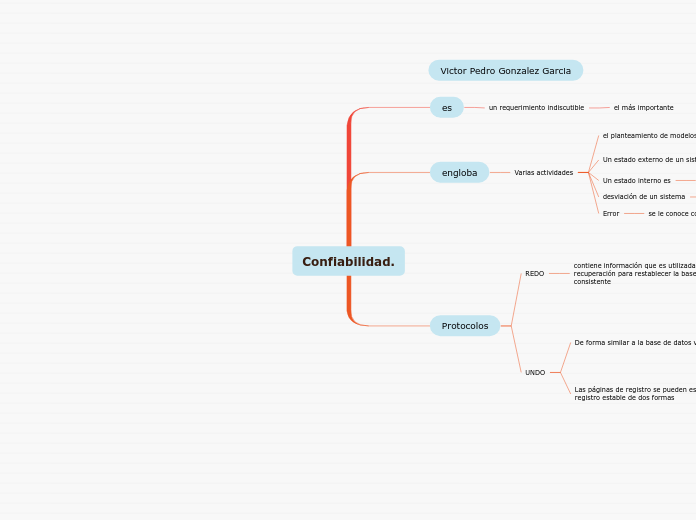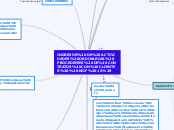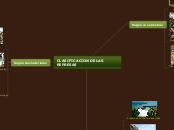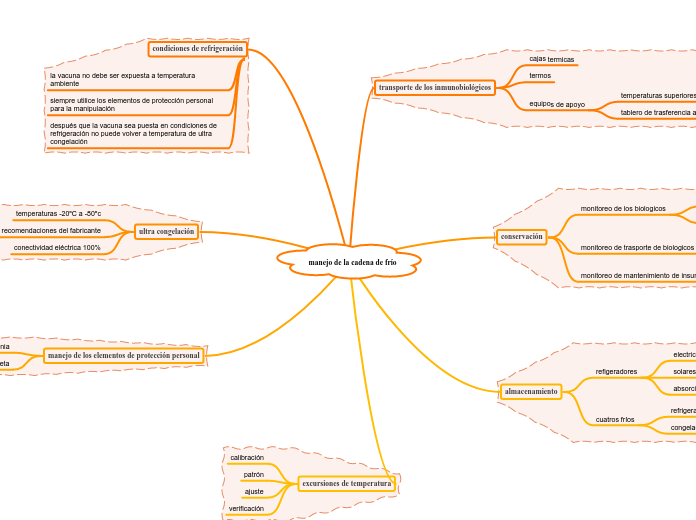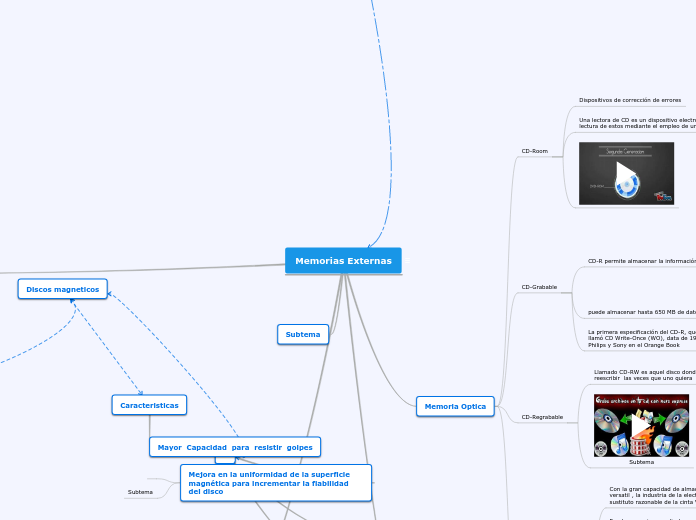Victor Pedro Gonzalez Garcia
Confiabilidad.
To name your story, you have to think about the overall message and what you want your audience to understand from the story. Also, make it relevant and easy to remember.
Protocolos
The ending of a story is essential. We all know that if the ending is weak, what happened before loses its importance. So make it unpredictable, but fair. A resolved ending answers all the questions and ties up any loose threads from the plot.
UNDO
This is the closure section of the story.
See examples of possible outcomes below:
- all problems have been solved
- it's clear how each one of your characters ends up
- your main character is transformed by the challenge
Las páginas de registro se pueden escribir en el registro estable de dos formas
asíncrona
las páginas del registro se mueven en forma periódica o cuando los buffers se llenan
síncrona
también llamada un registro forzado
la adición de cada dato en el registro requiere que la página del registro correspondiente se mueva al almacenamiento estable
De forma similar a la base de datos volátil
Try answering these questions to come up with a closure:
- Have all the problems been solved?
- Is there a clear picture of what happens with each character in the story?
- Has the challenge transformed your main character?
- How do the characters feel in the end?
y se escribe al almacenamiento estable
el registro de la base de datos se mantiene en memoria principal
REDO
This is the moment when the main character surpasses the last obstacle and finally faces their greatest challenge.
The climax usually follows one of these patterns:
- realization
- resolution
- choice
Type in your answer.
contiene información que es utilizada por el proceso de recuperación para restablecer la base de datos a un estado consistente
esta información puede incluir entre otras cosas
el valor nuevo del dato
el valor anterior del dato
los datos accesados por la transacción para realizar la acción
el tipo de operación realizada
el identificador de la transacción
engloba
The middle of the story is where you add layers of complications that will lead to the end. Reveal more about the character's journey. Did their personality go through changes? How did they overcome the challenges? And as you build up the story’s central conflict, make it more personal to that character. Also, from the middle act, you have to lead into the final act.
Varias actividades
Each story has a main character and that character usually needs to solve a problem or challenge. The character's challenge is the one that creates tension throughout the story.
Error
se le conoce como una falta en el sistema
desviación de un sistema
se considera como una falla
Un estado interno es
la respuesta del sistema a un estímulo interno.
Un estado externo de un sistema
Type in any other challenges which other characters in the story need to face.
se puede definir como la respuesta que un sistema proporciona a un estímulo externo
el planteamiento de modelos de confiabilidad
In most stories, there are 3 challenges. The number 3 is a mystical number symbolizing completeness. Try to come up with interesting challenges with which your character needs to struggle.
See a few examples below:
- turns into a werewolf at night
- is sent back in time
es fundamentalmente la probabilidad de supervivencia del sistema
es
In the beginning of the story (or the exposition), you will need to introduce the setting and characters. You might also want to introduce the main conflict. This part of the story is important because it gives the reader necessary background information and maybe even a first insight into a character’s personality.
un requerimiento indiscutible
Characters are essential to a good story. Usually, the protagonist(s) is/are the most affected by the plot. Introduce a character by focusing on their actions, interests, and occupation, as the physical appearance doesn't make a difference in most cases.
el más importante
Type in the name of your character.
